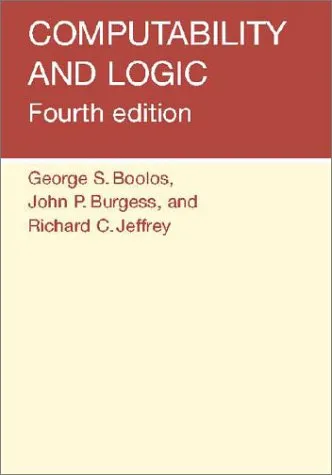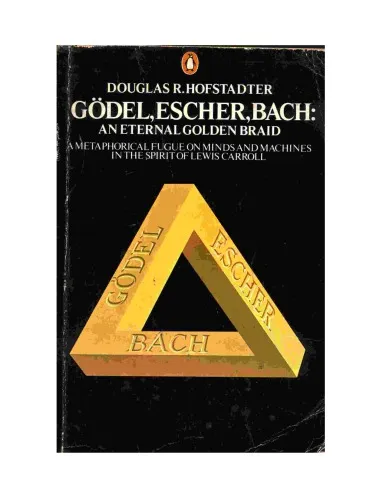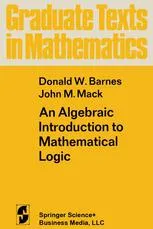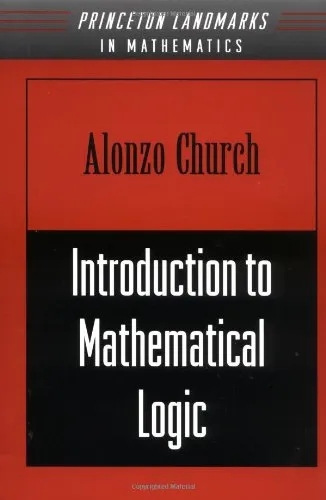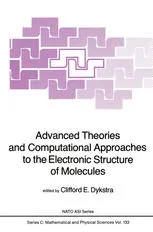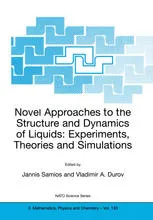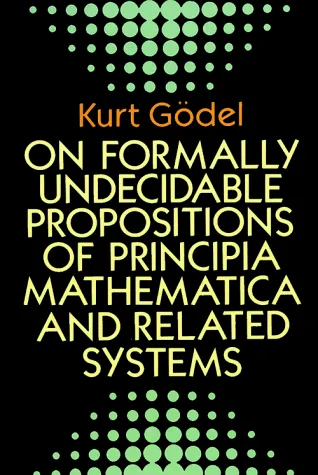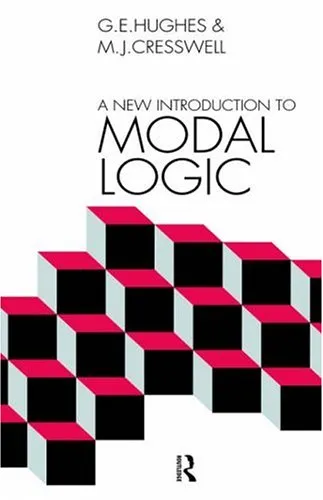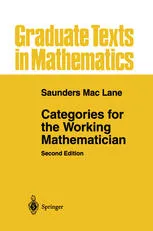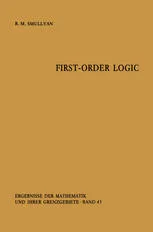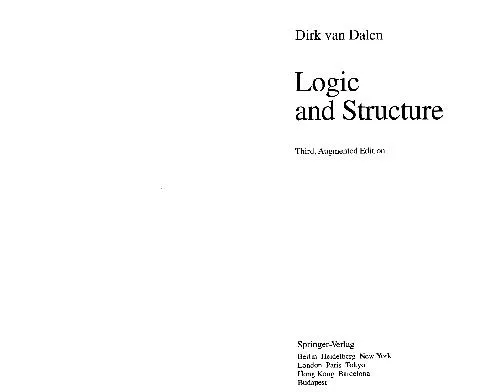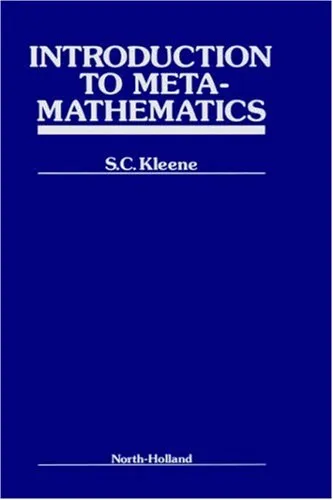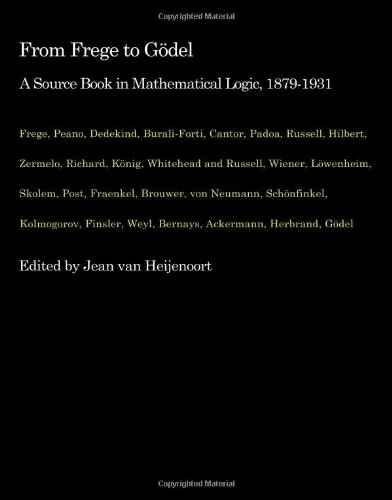Computability and logic
4.6
Reviews from our users

You Can Ask your questions from this book's AI after Login
Each download or ask from book AI costs 2 points. To earn more free points, please visit the Points Guide Page and complete some valuable actions.Related Refrences:
Introduction to "Computability and Logic"
Written by George Boolos, John Burgess, and Richard Jeffrey, "Computability and Logic" is an influential work that explores the deep interconnections between logic, mathematics, computer science, and philosophy. This book has been essential in shaping the understanding of these fields, serving as both an educational resource for students and a reference for seasoned professionals.
Detailed Summary of the Book
"Computability and Logic" provides an in-depth examination of the central concepts of computability theory alongside elements of logic. The book begins by defining the notion of computability, delving into both historical and technical aspects. Initially, readers are introduced to the concept of recursive functions, setting the groundwork for understanding computability in terms of algorithmic processes.
The authors proceed to explore various computational models, including Turing machines and the Lambda calculus. Each chapter builds incrementally, offering insight into subjects such as Gödel's Incompleteness Theorems and other fundamental aspects like Church's Thesis. The thorough, yet accessible explanations ensure readers grasp complex concepts without losing sight of their practical applications.
The subsequent chapters focus on formal logic, introducing formal proof systems and model theory, constructing the bridge between logic and computational theory. By doing so, the book elucidates how logical systems can be harnessed to prove or disprove computational processes, effectively merging logical analysis with computational practice.
Key Takeaways
- Computability: The book explains the notion of computable functions and the limitations inherent to algorithms.
- Formal Systems: It outlines the characteristics of several mathematical formal systems and their implications for logic.
- Gödel's Incompleteness Theorems: These theorems are described thoroughly, emphasizing their importance in understanding the constraints of formal systems.
- Interdisciplinary Approach: The work connects logic, mathematics, computer science, and philosophy, presenting a unified approach to these traditionally separate disciplines.
Famous Quotes from the Book
"The challenge is not in finding a complete system, but in realizing the limitations within which systems operate."
"In logic, the insignificance of a question is often marked by its resistance to algorithmic solution."
Why This Book Matters
"Computability and Logic" holds significant value for several reasons. First, it serves as a thorough educational text, accessible to students who seek to understand the fundamentals and intricacies of logic and computation. Its clear explanations and organized presentation make it a staple in introductory coursework spanning philosophy, computer science, and mathematics.
Furthermore, the book bridges concepts across disciplines, fostering a comprehensive view of logic that informs fields such as artificial intelligence and theoretical computer science. By addressing foundational questions about the nature and limits of what can be computed, it stimulates inquiry into ongoing research areas, offering a framework for exploring questions about human cognition and machine intelligence.
Lastly, the book's emphasis on foundational issues illustrates the rich historical context behind modern logic and computation, providing invaluable insights into the evolution of these fields. "Computability and Logic" remains relevant as both a scholarly resource and a guide for anyone interested in the underlying principles that drive our understanding of logic and computation today.
Free Direct Download
You Can Download this book after Login
Accessing books through legal platforms and public libraries not only supports the rights of authors and publishers but also contributes to the sustainability of reading culture. Before downloading, please take a moment to consider these options.
Find this book on other platforms:
WorldCat helps you find books in libraries worldwide.
See ratings, reviews, and discussions on Goodreads.
Find and buy rare or used books on AbeBooks.
1529
بازدید4.6
امتیاز0
نظر98%
رضایتReviews:
4.6
Based on 0 users review
Questions & Answers
Ask questions about this book or help others by answering
No questions yet. Be the first to ask!
